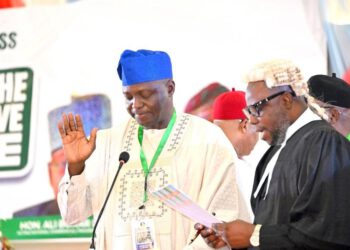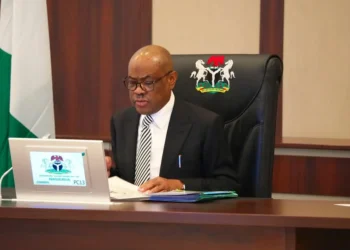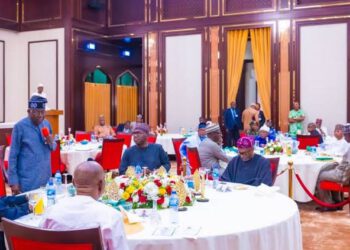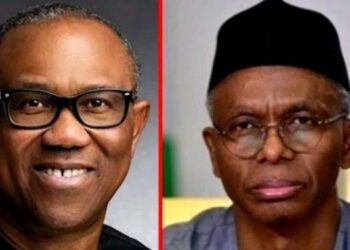…as ALGON Raises Concerns Over Delays, Debt Liabilities, and Lack of Clear Implementation Guidelines
The National Union of Local Government Employees (NULGE) has cautioned the Central Bank of Nigeria (CBN) against becoming an obstacle to local government financial autonomy, following reports that the apex bank had refused to open accounts for some councils due to alleged non-compliance with auditing requirements.
Similarly, the Association of Local Governments of Nigeria (ALGON) has expressed concern over the lack of formal communication from the CBN regarding the account-opening process, further complicating efforts to implement direct payments to local governments nine months after the Supreme Court’s landmark ruling on financial autonomy.
On March 2, 2025, The PUNCH reported that the immediate past Accountant-General of the Federation, Oluwatoyin Madein, and the Attorney-General of the Federation and Minister of Justice, Lateef Fagbemi, SAN, had commenced discussions on enforcing the Supreme Court verdict.
To implement the ruling, both officials have been consulting on the modalities for submitting local government bank accounts for direct allocation disbursement. However, a major hurdle remains—the difficulty in identifying local governments with democratically elected officials.
Minutes from the Federation Account Allocation Committee’s (FAAC) Technical Sub-Committee meeting indicate that this challenge has further stalled implementation efforts.
On January 1, 2025, President Bola Tinubu addressed concerns about alleged tensions between his administration and state governors over local government autonomy.
Speaking at his Ikoyi residence in Lagos while receiving Vice President Kashim Shettima and members of the Nigeria Governors’ Forum (NGF), Tinubu emphasized the need for cooperation rather than confrontation.
“There were gossips that we had disagreements on local government autonomy. No! Nobody wants to take them away from you, but we need collaboration,” the President said.
He urged governors to take an active role in grassroots development, adding, “You control your local governments. You can restore hope by effectively fulfilling what the people expect at the grassroots level. Just drive development at the local government. Let’s do it together and ensure Nigeria is better off for it.”
Meanwhile, indications have emerged that state governors, through the NGF, are pushing for a delay in the implementation of direct local government allocations, citing multi-billion-dollar debts allegedly incurred in the names of local councils.
ALGON’s Secretary-General, Mohammed Abubakar, revealed to The PUNCH that the CBN is facing significant pressure from governors to delay the process over outstanding liabilities.
“The Federal Government is also encountering its own bottlenecks,” Abubakar said.
“The last time I engaged with the FG team, they mentioned that governors are coming up with various excuses, including liabilities incurred in the names of local governments. These debts need to be properly itemized, and a balance must be found,” he added.
Abubakar warned that local government funds could be misappropriated under the guise of debt servicing. He called for a structured engagement with key stakeholders to prevent financial mismanagement.
“The proper thing to do is engage stakeholders—ALGON, NULGE, and professionals with experience in local government administration—to ensure that funds are not diverted under the pretense of debt repayment,” he said.
Abubakar also raised concerns that the CBN might be entangled in multiple legal battles with consultants who have secured court judgments against local governments.
“There is a fear that CBN is in court with many so-called consultants who have worked with local governments through ALGON. These consultants have obtained court judgments and garnishee orders. If local government funds are deposited at the CBN, these creditors might move to claim them, leaving local governments worse off,” he explained.
He stressed the need for local government chairmen to navigate these complexities diplomatically to maintain a working relationship with state governors.
“ALGON coordinates all 774 local governments, but the chairmen must be involved. They, in turn, need to reassure their governors that financial autonomy will not harm their operations or political influence,” he said.
Abubakar attributed the implementation delays partly to the CBN’s failure to provide clear guidelines on account submissions and signatory verification for local government officials.
“Our chairmen have not received properly documented details on how to engage the CBN for direct payments. The process remains unclear, and without transparency, implementation will continue to stall,” he said.
He urged the federal government to make the details public, emphasizing the need for proper engagement with stakeholders.
“There’s a committee set up by the federal government working on this. But if discussions remain confined within that committee, without broader stakeholder input, implementation will face resistance. We need transparency, clarity, and inclusiveness,” Abubakar insisted.
He called on the Attorney-General’s office, the Secretary to the Government of the Federation, George Akume, and other relevant authorities to engage ALGON, NULGE, and other key stakeholders in ensuring a seamless transition to financial autonomy for local governments.
“If stakeholders are actively involved, implementation can commence as soon as possible,” he concluded.





















